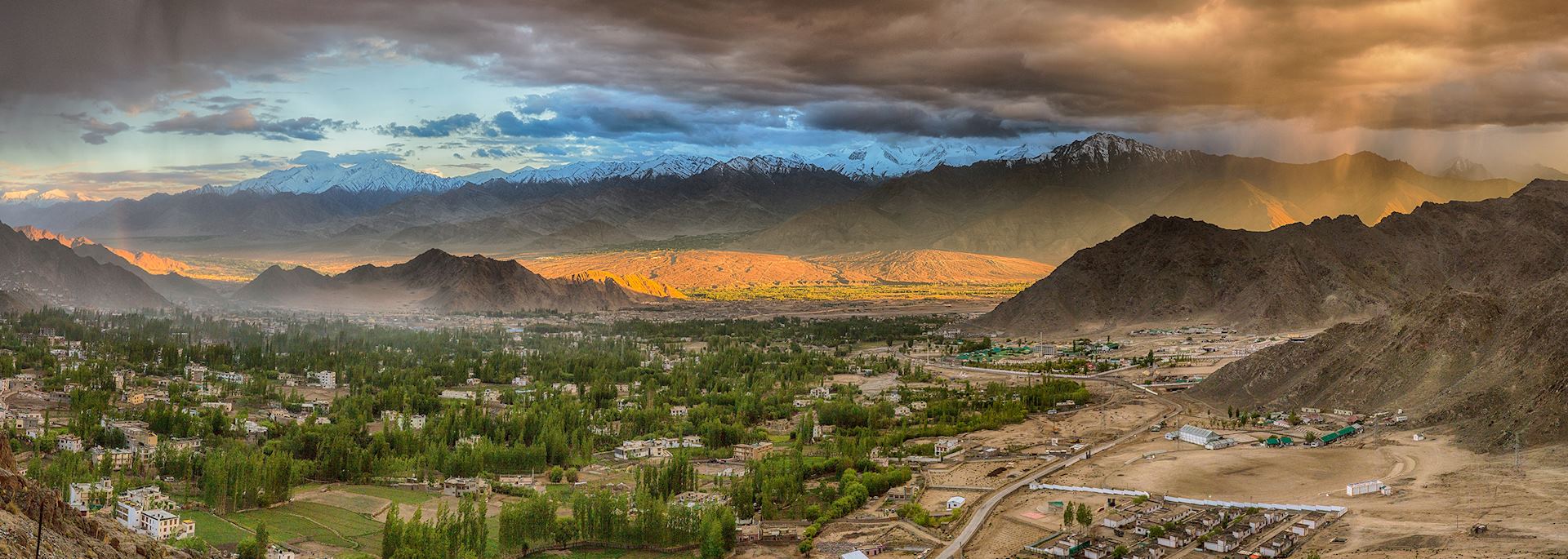Spituk Gompa, just 8 km from Leh, was built in the 15th century. It is situated on a hilltop above the Indus River and has some prized thangkas and huge statues of the goddess Kali.
Leh Palace, described as a miniature version of Lhasa’s Potala Palace, was built in the 16th century and looms over the town. For a long time the palace was deserted and in disrepair but is now under renovation by the ASI and so not open to the public.
Sankar Gompa, just a couple of kilometers north of the town center, is an interesting little gompa and is worth a visit. There are a number of gold statues, wall paintings and sculptures including a large one of the 11-headed, 1,000 armed avalokitesvara. It is open for only a short time during the day, from 7.00am to 10.00am and then 5.00pm to 7.00pm.
Stok Palace, situated 10 km south of Leh, was built in the 1840s and was the residence of the Ladakh royal family until the last king died in 1974. Stok hosts an archery competition in July. A three-hour walk up the valley behind the palace will reveal some remarkable mountain scenery. The palace also has an exhibition of royal jewelry including a turquoise and mountain coral crown and royal artifacts including palenquins and black and white photographs of the royal family.
Jama Masjid, the Sunni mosque, is situated at the end of the Main Bazaar, and was built in 1661 by King Deldan Namgyal as a result of a threat from Aurangzeb. The building can accommodate more than 500 people and is built in the Ladakhi style of architecture.
who's been there
-
617-223-4521617-223-4195
- Make an inquiry

